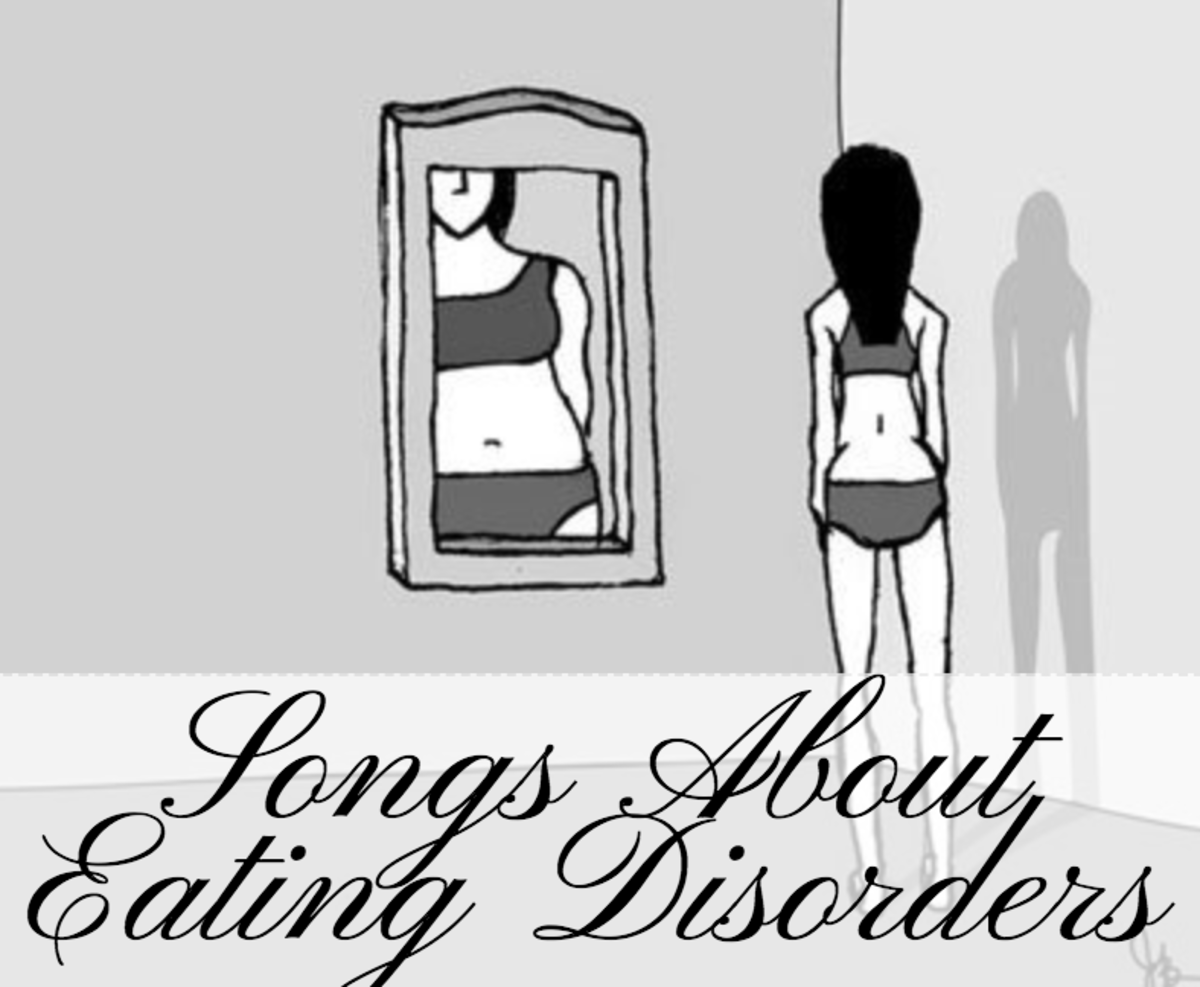How to Help Your Child With "Eating Disorder".

Introduction of "Eating Disorders".
In Abnormal/Clinical Psychology, an eating disorder is one of the major disorders that can disrupt one's functioning. According to the American Psychiatric Association, there are three types of disorders that fall under the category of "eating disorder" i-e:
- Anorexia Nervosa
- Bulimia Nervosa
- Binge-eating Disorder
Anorexia Nervosa
Anorexia nervosa is a type of eating disorder that starts with a false mindset of a perfect "body image". Usually, it is seen among females than males. Because women are more prone to anorexia nervosa because of the standards of beauty that the media keep on showing. To meet that perfect body image, people most often fell prey to eating disorders like "anorexia Nervosa.
People suffering from anorexia nervosa are often in denial of losing weight than normal. They sometimes starve themselves to the level that they faint off and on. Yet they are always decreasing their intake of food & refusing to eat by the fear of getting fat/gaining weight. Which ultimately, starts affecting the body and physical symptoms start to emerge.
Symptoms
According to DSM-5 (Diagnostic & Statistical Manual of Mental Disorders- 5) its symptoms and signs may include:
- Blood Pressure, pulse rate drops
- Loss of calcium resulting in osteoporosis
- Breakage of nails & hair
- The person may become anemic
- Constipation
- There is a fall in body temperature.
- Mood changes usually depressed and lethargic mood
- Irregular menstrual cycle
- Dryness of skin, etc.

Bulimia Nervosa
Eating disorders include the second disorder that is known as "Bulimia Nervosa". This is a type of eating disorder that often goes unnoticed by the people around the sufferer. Because people who are having bulimia nervosa do over-eating to the level that their stomach starts hurting. They don't become as thin as the people who are suffering from anorexia nervosa.
However, bulimia nervosa can get dangerous too for the people who are suffering from it. Because they often eat large amounts of calories at a time that may include sugar & carbohydrates. When they binge eat or after an episode of binge-eating the "guilt" follows! And they do vomitings either by self-inducing it or by eating a large amount of food. Moreover, they use laxatives & diuretics. "Fear of gaining weight" is common in bulimia nervosa as well but they usually hide their binge-eating episodes from other people.
Symptoms and signs
Following are the symptoms & signs of bulimia nervosa that are given by DSM-5 for diagnosis:
- Usually, there is a decay in their tooth enamel due to stomach acids
- Kidney issues may occur by using diuretics
- Dehydration by inducing vomitings
- Intestinal issues with the misusage of laxatives
- Gastroesophageal Reflux Disorder
- Puffy/swollen face
- Inflammation of throat, etc.

Binge Eating Disorder
Binge eating disorder is different from bulimia nervosa in such a way that people eat large amounts of food in a shorter period of time and they do not feel guilty about it. Unlike bulimia nervosa, they are not worried about weight gain and that is why becomes obese. Which ultimately results in other physical complications for them. For instance, they often get cardiovascular disease, diabetes, etc.
According to the "American Psychiatrist Association", a person can be diagnosed with binge-eating disorder if he has one of the following symptoms once in a week for almost three or more months:
- Rapid eating than usual
- Binge-eating until stomach aches
- Eating a lot amount of calories even when not hungry
- Hiding binge-eating episodes from other people
- Feeling of guilt or depression after a binge eating episode, etc.

How to Identify if your child is having Eating disorder
It is necessary to keep an eye if you see any change in the eating habits of your child. Usually, eating disorders hit most often to teenagers as they are entering into adolescence and there is also a change in their hormones. Feeling of being known to the world and popularity among friends and family emerge at this stage of development.
This is the reason, parents need to put an eye on their children when they are growing.
Identifying the signs
You need to identify the signs in a change in the behavior of your child. Eating disorders can turn out to be fatal sometimes. So, it is important to identify it in the early stages so that you can work on its recovery. Keep an eye on the weight of your child/adolescent. Whether there is a decrease or increase in weight. If you see any signs talk to your child/adolescent about the change and its possible causes.
Listen to your child
It is important to listen to your child about what he/she has to say about the change in eating habits or behavior. Keep your child/adolescent space to talk or initiate any topic related to body image and notice what he/she has to say about it. what he/she thinks about it. Always give your child a friendly environment at home so that he/she feels open to talking about anything that distresses him/her.
Work on Low Self-esteem Issues
The reason & causes of the emergence of eating disorders in adolescence could probably be "low self-esteem". You, as a parent, need to work on the self-esteem of your children. Give them confidence so that they would cope better in society. Many studies have shown that people who are suffering from eating disorders usually have low levels of self-esteem or low self-confidence. To keep your children mentally healthy you need to work on their confidence. Encourage & appreciate when they do something good or get good grades or paint or sketch.
Avoid Conflicts at home
As adolescence is an age in which individuals are evolving and trying to understand the world. Making new friends, adjusting to different social circles, etc. Thus, it is important to maintain a peaceful environment at your home. Individuals who are exposed to conflicting situations in their early adolescence usually end up trusting their friends more than family. That, sometimes, indulges them in unhealthy habits or behaviors.
Avoid blaming
Blaming yourself or them for eating disorders would not serve you. You need to help them if they got stuck and for that, you need to give them acceptance for their behavior in the first place. Because after acceptance you can convince them for professional help if needed.
Seeking professional Help/Therapy for Your child/adolescent
When you get informed you informed that your child/adolescent is having an eating disorder. Firstly, you need to have patience so that you can cope with this situation properly. Children are always looking at their parents for everything so this is an important step to keep yourself calm.
Then, you can set an appointment with the pediatrician of your child/adolescent for eating disorder treatment. After that, you can also consult a mental health professional for psychotherapy if needed or symptoms get worse.
In short, identifying the signs & symptoms at the early stage of an eating disorder will help you take the necessary steps for your child which ultimately, would turn out to be beneficial for both of you!!
This content is for informational purposes only and does not substitute for formal and individualized diagnosis, prognosis, treatment, prescription, and/or dietary advice from a licensed medical professional. Do not stop or alter your current course of treatment. If pregnant or nursing, consult with a qualified provider on an individual basis. Seek immediate help if you are experiencing a medical emergency.
© 2020 Zura Rubab Khan








